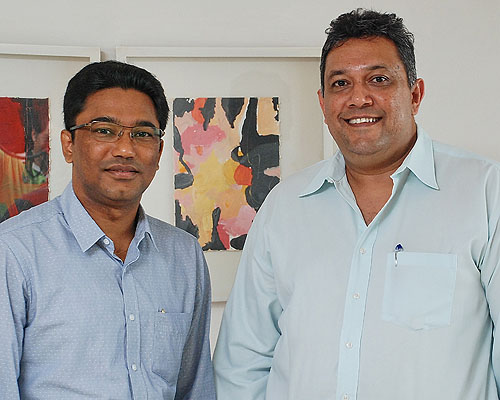The AIT-WWF joint proposal titled "Building Capacity and Strengthening
Community Participation for Water Resources Management and Wetland
Ecosystem Restoration in the Context of Climate Change in Lower
Songkhram River Basin” was selected by HSBC from fifteen competitive
bids submitted from around the world.
The HSBC Water Sustainability Program will provide funding to the
project that will commence on 1 September 2014 and operate until the
end of 2016. AIT’s role covers academic research and training, while
WWF Thailand will focus on ground level support.
It’s an example of our vigorous push to connect with multinationals,
corporate firms and industry, said AIT Fundraising Director Mr. Sanjeev
Jayasinghe, who spearheaded the connection with HSBC.
“AIT’s linkages with the private sector are very important and
conducive to showcasing our technical expertise which can be applied to
serve industry-specific needs and address societal issues,” he
said.
The Songkhram River, located in the Northeast region of the country
known as ‘Isan’, is a major tributary of the Mekong River. The river
basin region possesses a rich, diverse and dynamic ecosystem that
supports a range of economic activities.
According to the project’s principal investigator Assistant Prof.
Sangam Shrestha of the School of Engineering and Technology, AIT will
be responsible for forecasting climate change scenarios, and assessing
the impact of climate change on water availability and water quality in
the basin.
In addition, AIT will launch a ‘River Watch Program’ to increase
public awareness on water quantity and water quality issues by training
HSBC staff and local stakeholders to monitor stream flows and water
quality.
“The pattern of seasonal flooding and recession, the range of natural
habitats inundated across the Songkhram floodplain and the connections
between the flow of the Songkhram and Mekong are fundamental to the
productivity of natural resources,” Dr. Shrestha said.
“Any changes to this natural pattern of flooding – whether from
development planning, land use changes or climate change – pose risks
to the ecosystem and local economies,” he added.
The project is expected to demonstrate exemplary water stewardship
practices and processes that balance human water demands and natural
hydrologic flows to conserve healthy and resilient basin systems under
climate change scenarios.
For more information about the HSBC Water Sustainability Program
please visit:
http://www.hsbc.com/citizenship/sustainability/hsbc-water-programme


